6 Common Mistakes To Avoid Right-Sizing To HDB Flats
March 18, 2022
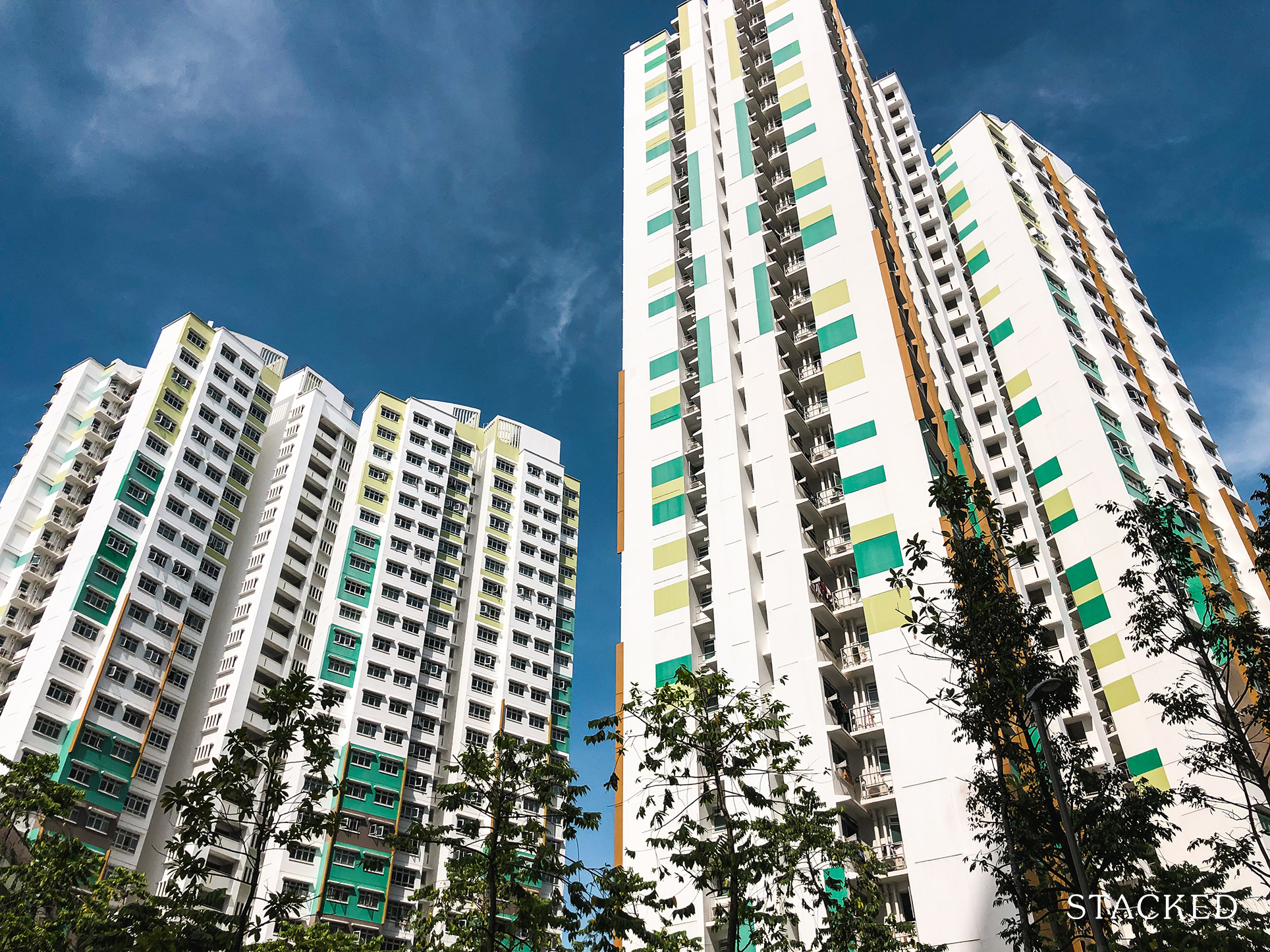
With private property prices at a peak, some Singaporeans may decide this is the time to right-size and make a big contribution to other financial goals. While it’s not a bad idea in 2022, do make sure you’re up to date on all the rule changes; and look out for the following missteps when getting back to an HDB flat:
Table Of Contents
- 1. Thinking you can ballot for a cheaper BTO flat right away
- 2. Forgetting the possibility of COV
- 3. Overlooking restrictions that apply for 30 months
- 4. Not realising your CPF usage can be restricted, for very old flats
- 5. Believing you can’t buy a resale flat until you sell your private property
- 6. Forgetting that the Mortgage Servicing Ratio (MSR) is more restrictive than the Total Debt Servicing Ratio (TDSR)
So many readers write in because they're unsure what to do next, and don't know who to trust.
If this sounds familiar, we offer structured 1-to-1 consultations where we walk through your finances, goals, and market options objectively.
No obligation. Just clarity.
Learn more here.
1. Thinking you can ballot for a cheaper BTO flat right away
You can’t ballot for a BTO flat until 30 months after you sell your private property; so most right-sizers will have no choice but to buy resale. The issue here is that the resale flat market, in 2022, is not cheap.
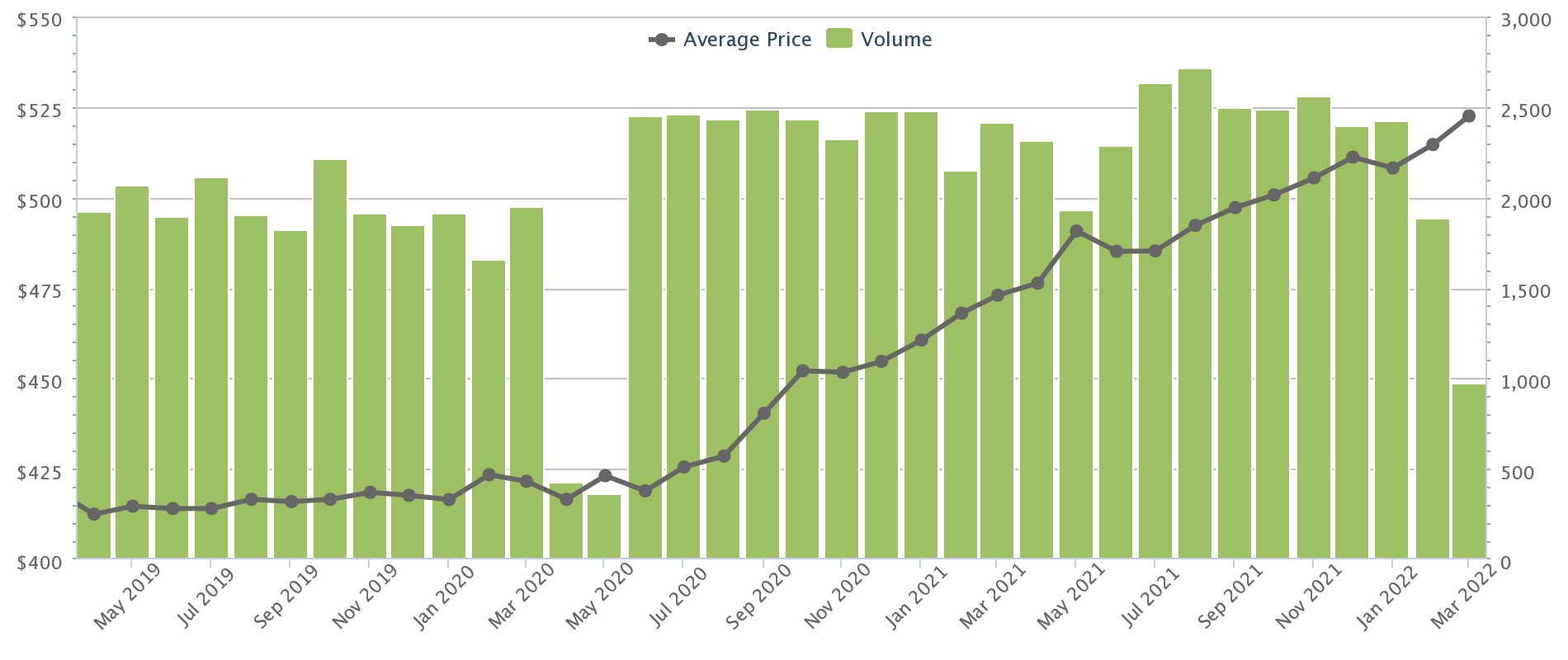
Resale flat prices are at their highest since around 2010, with about a third of flats transacting with Cash Over Valuation (COV). The situation has not changed despite cooling measures in December last year.
As such, you may want to consider if you really need to buy the replacement right now. For example, if you have another place to stay (e.g., you can stay with children or siblings for a year or two), you may even want to consider selling now, but buying your resale flat later. This way, you can hopefully avoid buying while prices are at a fever pitch.
For those who you who have to brave higher resale flat prices, however, take note of the next point:
2. Forgetting the possibility of COV
If you’re using a bank loan for the replacement home, the minimum cash down is five per cent. However, bear in mind that home loans don’t cover Cash Over Valuation (COV).
COV is any amount above the official valuation of the flat. E.g., if a flat is valued at $350,000 but the seller’s price is $365,000, then the COV of $15,000 has to be covered in cash.
As of last year, about a third of HDB flats were sold with COV; and realtors have told us that COV is virtually assured for high-demand areas such as Queenstown or Bugis.
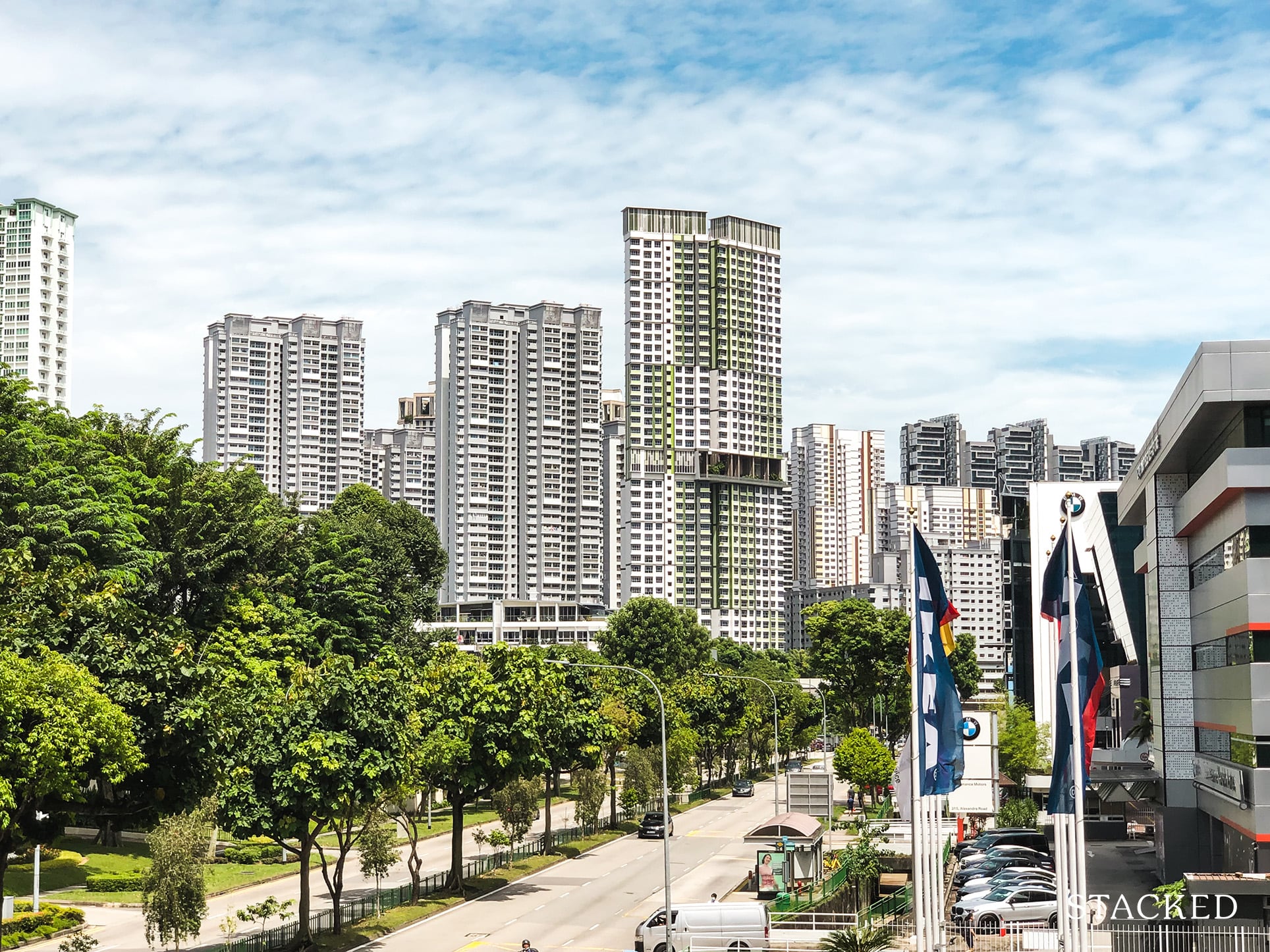
For this reason, you must plan to pay more than the minimum down payment, if using a bank loan. Even if you can get an HDB loan (this is unlikely, see point 3), you would still need to cover any COV in cash.
The tricky part here is that, as of 2013, HDB no longer publishes COV rates. You are also required to agree on the price, before you receive the official valuation. This can make COV amounts a bit unpredictable (although we do have a crowd-sourced COV list to get some indication here).
Another solution is to get help from a realtor who recently concluded a transaction in the same town or block; they would have the best-educated guess on the COV amount.
Note that the CEA public register now discloses a realtor’s previous transactions, so you can check if they’ve really transacted in your chosen area.
3. Overlooking restrictions that apply for 30 months
Besides being unable to buy a BTO flat (see point 1), there are some other restrictions you face, for up to 30 months after selling your private property:
- You cannot buy an Executive Condominium
- You must use a bank loan for the flat
- There are no CPF housing grants available (but note that the Proximity Housing Grant can still be obtained)
So for those who hit upon the idea of right-sizing from a private condo to an EC, it’s possible but you need to wait a really long time.
The main concern here, however, is the need to use a bank loan. The first consideration is that, if you have an outstanding loan on your private property, you won’t get the full loan quantum for your flat – so it’s almost always best to discharge your existing loan first.
The second concern is that, even after discharging the previous loan, you still need to pay the first five per cent of your flat in cash. Depending on your age, you could also face a lower Loan To Value (LTV) ratio, which can also raise this amount.
(Check out this article for more detailed loan guidelines).
So while most right-sizers will have ample cash for this after selling a condo, always double-check the numbers before you make your move. Remember you must have enough cash for the down payment and any COV, after refunding your CPF and discharging your previous home loan.
4. Not realising your CPF usage can be restricted, for very old flats
Note that the rules of CPF usage, for HDB flats, were revised in May 2019.
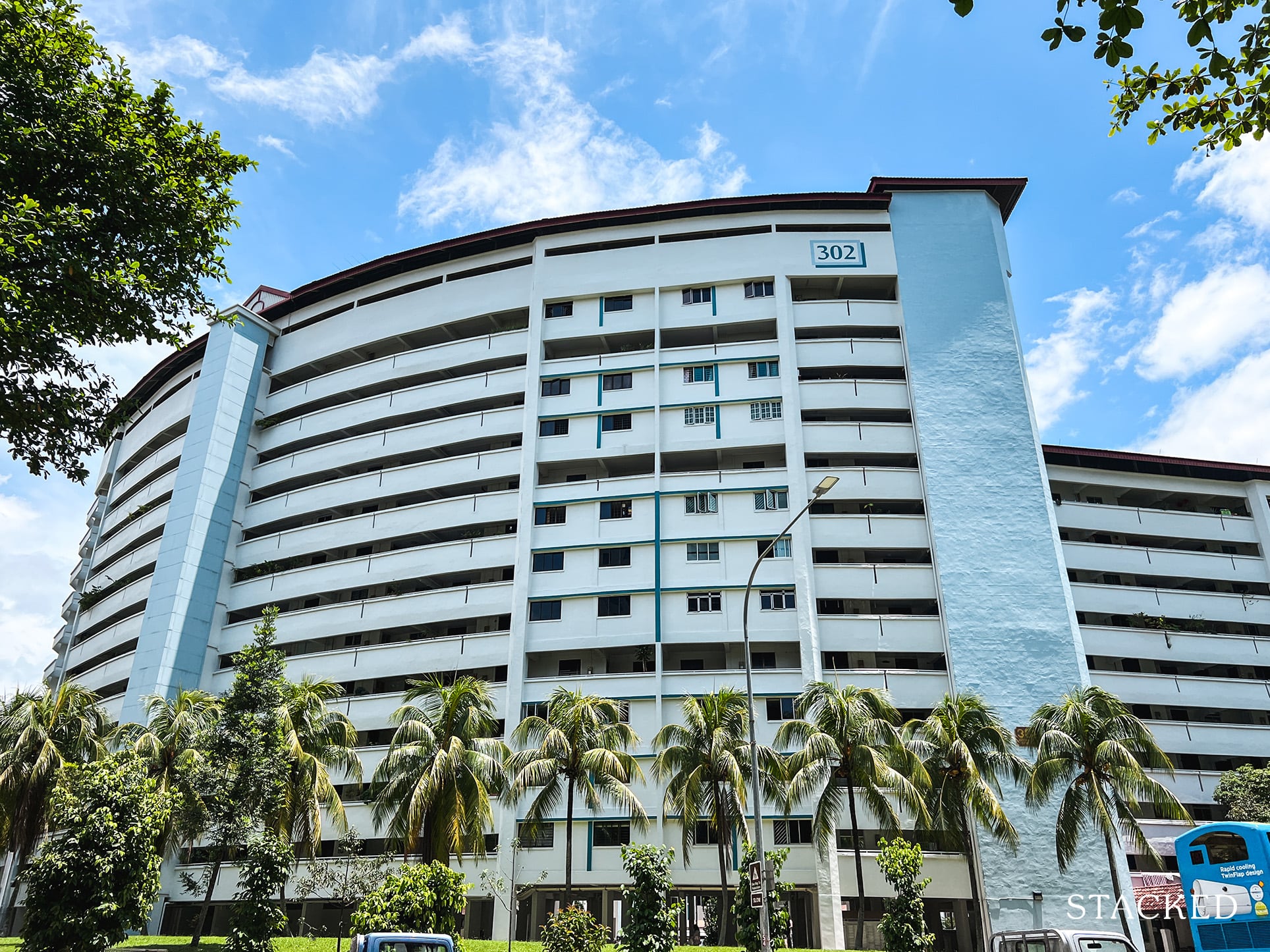
You can now use your CPF to buy a flat so long as there are 20 years left on the lease (this was previously 30 years). However, the remaining lease on the flat must last until the youngest buyer is 95 years old. E.g., if the youngest buyer is 40 years old, the flat must have a remaining lease of 55 years.
If the lease wouldn’t last this long, the amount of CPF you can use will be pro-rated (consults CPF to find out exactly how much you can use).
5. Believing you can’t buy a resale flat until you sell your private property
You can go ahead and buy a resale flat before selling your condo or landed home, and you also do not have to pay Additional Buyer’s Stamp Duty (ABSD) for the flat.
However, you are required to sell your private property within six months of purchasing the flat. This can be stressful to some buyers, as it forces you to work with a deadline; but it also means you may not need temporary accommodations.
(Otherwise after selling your condo, you might have to rent or live at another place while you wait for your resale flat. Bear in mind that renovation delays are common due to Covid-19).
Talk to a realtor about planning the timeline, so you can right-size without having to move twice.
6. Forgetting that the Mortgage Servicing Ratio (MSR) is more restrictive than the Total Debt Servicing Ratio (TDSR)
The TDSR restricts your monthly home loan repayment, inclusive of other debts, to 55 per cent of your monthly income.
For HDB properties, however, you must also meet the MSR. This was introduced back in 2013. The MSR is much tighter than the TDSR – it restricts your monthly home loan repayment to 30 per cent of your monthly income.
The MSR restriction cannot be lessened by extending the loan tenure. This is unlike with private property where the loans can be extended beyond 25 years to reduce the monthly mortgage repayments.
Do take note that the MSR calculation takes into account the monthly repayments of any other properties that you have. While this is highly unlikely if you plan to right-size to an HDB (since you cannot own another property and buy an HDB), being a guarantor of any other property loans does count towards your MSR. MAS specifically states:
When calculating MSR, FIs are to take into consideration:
- All the borrower’s property loans.
- At least 20% of the monthly debt obligation for any property loan where the borrower is a guarantor.
(You should still pay down your other loans if you can, however, as creditworthiness affects other aspects of your loan application).
Right-sizing can be a bit tricky with Covid-19 delays going on, and if you’re not familiar with HDB eligibility issues. Speak to a qualified realtor on how to best plan your move, and avoid being caught out and having to rent. You can also talk to us at Stacked for help, and follow us to keep up to date on the Singapore private property market.
At Stacked, we like to look beyond the headlines and surface-level numbers, and focus on how things play out in the real world.
If you’d like to discuss how this applies to your own circumstances, you can reach out for a one-to-one consultation here.
And if you simply have a question or want to share a thought, feel free to write to us at stories@stackedhomes.com — we read every message.
Ryan J. Ong
A seasoned content strategist with over 17 years in the real estate and financial journalism sectors, Ryan has built a reputation for transforming complex industry jargon into accessible knowledge. With a track record of writing and editing for leading financial platforms and publications, Ryan's expertise has been recognised across various media outlets. His role as a former content editor for 99.co and a co-host for CNA 938's Open House programme underscores his commitment to providing valuable insights into the property market.Need help with a property decision?
Speak to our team →Read next from Property Advice

Property Advice We Can Buy Two HDBs Today — Is Waiting For An EC A Mistake?

Property Advice I’m 55, Have No Income, And Own A Fully Paid HDB Flat—Can I Still Buy Another One Before Selling?

Property Advice We’re Upgrading From A 5-Room HDB On A Single Income At 43 — Which Condo Is Safer?

Property Advice We’re In Our 50s And Own An Ageing Leasehold Condo And HDB Flat: Is Keeping Both A Mistake?
Latest Posts
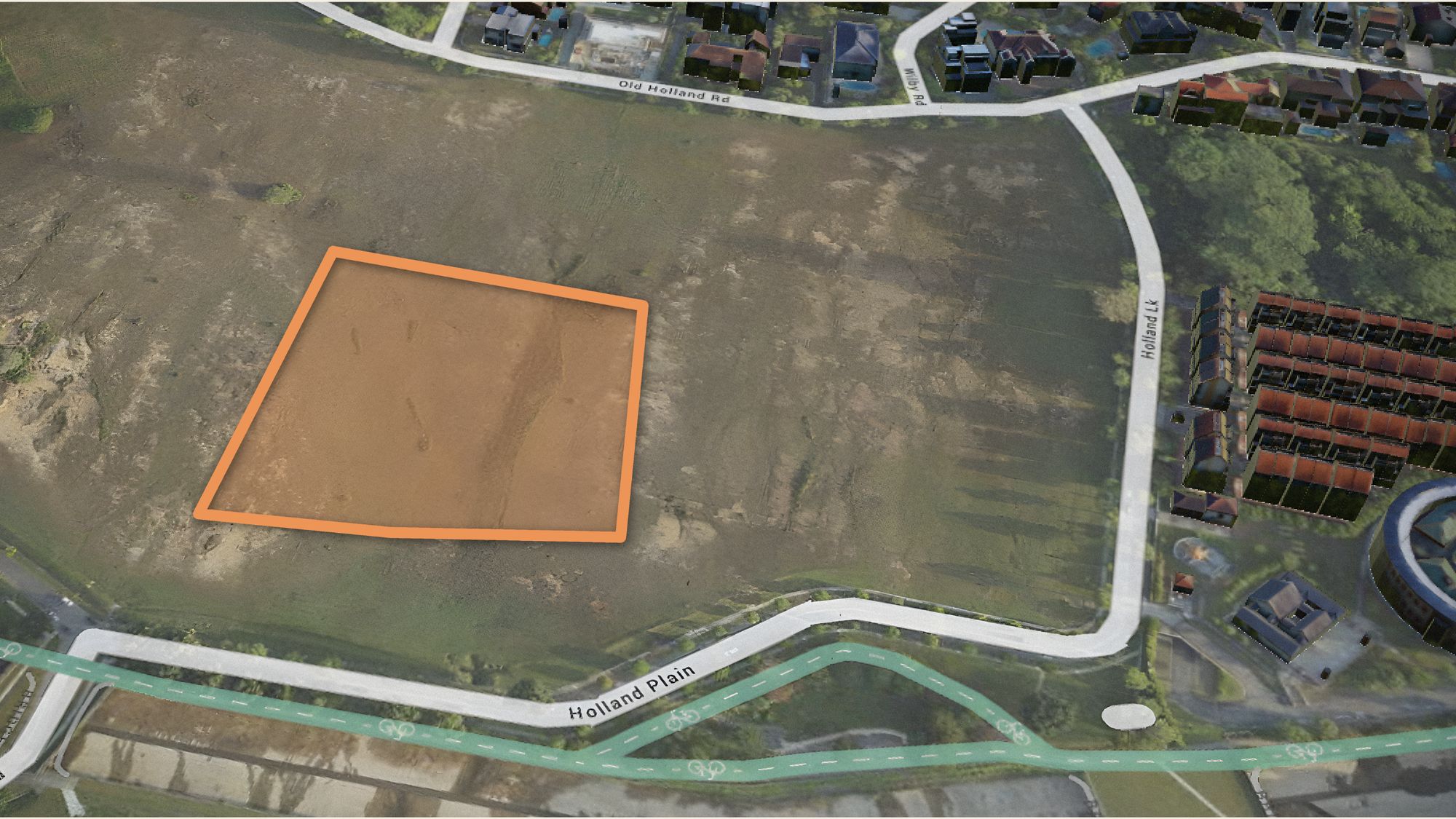
Singapore Property News Two New Prime Land Sites Could Add 485 Homes — But One Could Be Especially Interesting For Buyers

Pro This 130-Unit Condo Launched 40% Above Its District — And Prices Struggled To Grow

Property Investment Insights These Freehold Condos Barely Made Money After Nearly 10 Years — Here’s What Went Wrong


































0 Comments